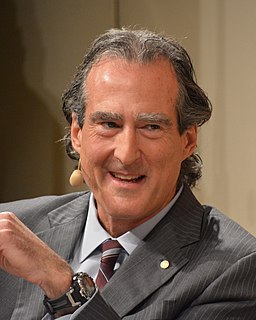A Quote by Craig Mello
Greatest discoveries come from passionate scientists with naive curiosity
Quote Topics
Related Quotes
My two older brothers are both molecular biologists and neuroscientists, and I feel like representing them accurately is never done in movies, and I really wanted to at least capture the spirit of a Ph.D. student whose goal and aspiration is to increase the sum total of human knowledge. That is noble. That was really, really important, to capture the three-dimensionality of scientists. Scientists fall in love, scientists have the greatest sense of humor, scientists are passionate.
For Jews, the Messiah has never come; for Christians, He has come but once; for modern man, He appears and disappears with increasing rapidity. The saviors of modern man, the "scientists" who promise salvation through the "discoveries" of ethology and sociology, psychology and psychiatry, and all the other bogus religions, issue forth periodically, as if selected by some Messiah-of-the-Month Club.
Historically, very few discoveries were made out of thin air. Most of the greatest insights depended upon the intellectual ecology in which the scientists lived. A certain critical mass of "new findings" occurred, and bright people all over the world found out about it, and several read the tea leaves the same way.


































